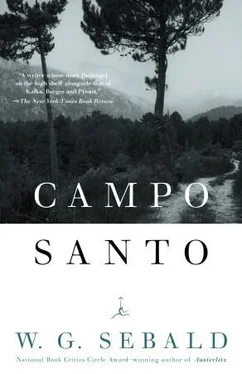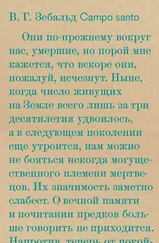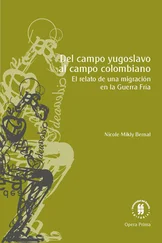Kafka himself is known to have distrusted all utopianism. Not long before his death he said that he had been exiled from Canaan for forty years, and even the community which he sometimes longed for was basically suspect to him; he wanted only to dissolve away by himself, as the water runs into the sea. Few people ever seem to have been as much alone as Kafka appears in the last pictures of him, to which we may add one extrapolated from them, so to speak, and painted by Jan Peter Tripp. It shows Kafka as he might have looked had he lived eleven or twelve years longer. That would have been in 1935. The Reich party rally would have been held, just as Riefenstahl’s film shows it. The race laws would have come into force, and Kafka, if he had had his photograph taken again, would have looked at us as he does from Tripp’s ghostly picture — from beyond the grave.
Scomber scombrus, or the Common Mackerel: On Pictures by Jan Peter Tripp
The two sails were billowing in the west wind, and we set a course to take our boat cutting through the tidal current against which the mackerel, well known to be the greediest of fish, like to swim. As day dawned we cast out our lines. Soon we could see the barrier of the chalk cliffs in the twilit distance, bordered on top by the narrow band of dark fields and woods, but it was some time after that before the rays of the sun shone through the slight waves, and the mackerel showed themselves.
Crowding close together, apparently in ever increasing numbers, they shot past just below the surface of the water. Their stiff, torpedo-shaped bodies, whose outstanding feature is an overdeveloped muscular system that considerably restricts their agility, drives them straight ahead all the time. It is almost impossible for them to rest, and they can approach a destination only by describing a wide arc. Where exactly they go, unlike those fish which have more settled habits, has long been and still is a mystery. Ehrenbaum writes that in the oceans off the American and European coasts there are regions covering many square miles, and going fathoms down into the depths, where the mackerel can be found in thousands of millions at certain times of the year, and that the fish disappear from them again as suddenly as they came. Now, however, they were shining and flashing all around us. In the blue of their backs, which has an irregular dark brown stripe down it, purple and greenish-gold spangles sparkled in an iridescent play of color. We had often noticed when we caught the fish that at the moment of their death, indeed as soon as they felt the mere touch of the strange, dry air, the iridescence quickly faded and was extinguished, fading to a leaden hue.
The strange name of the mackerel reminds us of their wonderful shimmering appearance in life, for Ehrenbaum tells us elsewhere that it derives from the Latin epithet varius , or to its diminutives variolus, variellus, varellus , meaning pied or flecked, and consequently the petite vérole or syphilis takes its name from them, the disease that was once most usually caught in houses where, in the French idiom, maquerelle was the word for a madam. Very likely the connections between the life and death of men and mackerel are far more complex than we guess. Isn’t there, I thought as I pulled in the first line, an engraving by Grandville showing half a dozen particularly coldblooded fish decked out in starched shirt fronts, ties, and evening dress, sitting at a table and eating one of their own kind, or what would be hardly less terrible one of our kind? Perhaps it is no coincidence that to dream of fish is said to mean death.
Yet the same fish is an emblem of fertility among many peoples. Scheftelowitz, for instance, claims that among the Jews of Tunisia it was the custom to sprinkle mackerel scales on the pillow at weddings or on the Sabbath eve, while the Viennese psychiatrist and anthropologist Aisenbruk, who emigrated to California, tells us in his unjustly neglected writings that the Tyroleans like to nail a fishtail to the parlor ceiling at Christmas.
The facts of the matter, of course, are different. None of us ultimately knows how he may end up on someone else’s plate, or what mysteries are hidden in that other person’s closed hand. Even if we turn to ichthyomancy and to instruments for dissecting the mackerel, if we carefully take it apart and question the oracle of its entrails, we shall be unlikely to get an answer, for such things only look back at us blind and dumb — the grain in planed wood, the silver bracelet, the aging skin, the broken eye — and tell us nothing of the fate of our own kind. These thoughts preoccupied me until late in the evening. We had long since returned from our fishing trip, were back on dry land and looking out again at the gray sea, when it seemed to me as if something triangular were gliding out there, visible only now and then among the waves. “Perhaps it’s someone still out sailing,” said my companion, and she added, “or else the fin of that great fish we will never net passing us far out at sea.”
The Unwritten Commandment

Endgame
The Mystery of the Red-Brown Skin: An Approach to Bruce Chatwin
It is not easy to think of a contemporary German writer who would have ventured as much from the first as that tireless traveler Bruce Chatwin, each of whose five books, remarkable by any standards, is set in a different part of the world. Nor could you find anyone in Germany, where the good average mind is typical and the art of biography is held in low esteem, who after the early death of such an author would have emulated Nicholas Shakespeare in tracking him down in the suburbs of Birmingham, in London, on the Welsh borders, the island of Crete, and Mount Athos, in Prague, in Patagonia, Afghanistan, Australia, and darkest Africa, to find witnesses who could speak of the man who passed them by like a comet.
Just as Chatwin himself ultimately remains an enigma, one never knows how to classify his books. All that is obvious is that their structure and intentions place them in no known genre. Inspired by a kind of avidity for the undiscovered, they move along a line where the points of demarcation are those strange manifestations and objects of which one cannot say whether they are real, or whether they are among the phantasms generated in our minds from time immemorial. Anthropological and mythological studies in the tradition of Tristes Tropiques , adventure stories looking back to our early childhood reading, collections of facts, dream books, regional novels, examples of lush exoticism, puritanical penance, sweeping baroque vision, self-denial, and personal confession — they are all these things together. It probably does them most justice to see their promiscuity, which breaks the mold of the modernist concept, as a late flowering of those early traveler’s tales, going back to Marco Polo, where reality is constantly entering the realm of the metaphysical and miraculous, and the way through the world is taken from the first with an eye fixed on the writer’s own end.
One of Chatwin’s favorite books was Gustave Flaubert’s Trois Contes , in particular the story of Saint Julian, who must atone for the sins of bloodshed he has incurred by his passion for hunting on a long journey through the hottest and coldest zones on earth: his limbs freeze and almost drop off as he crosses the icefields, and in the blazing sun of the deserts the hair on his head catches fire. I cannot read a page of this terrifying story, the product of its author’s profoundly hysterical disposition, without seeing Chatwin as he was, an ingénu driven by a panic need for knowledge and love, still like an adolescent at the age of thirty.
Читать дальше













